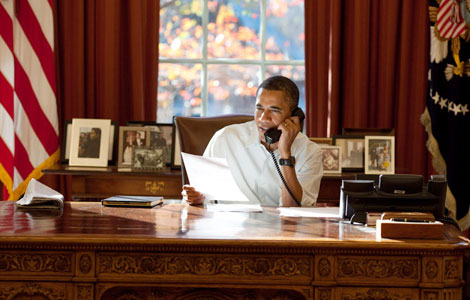Russia imposes security clampdown in Sochi before Olympics
Updated: 2014-01-08 04:40
(Agencies)
|
||||||||
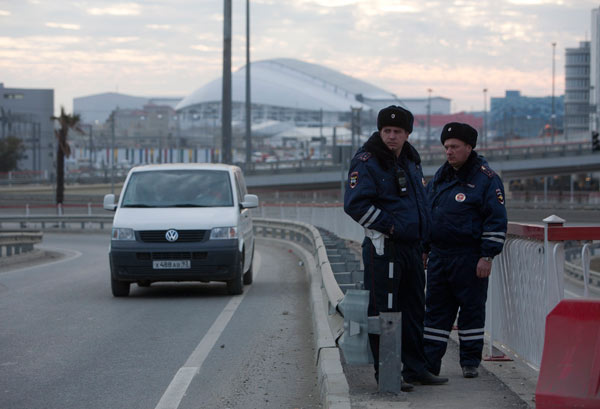 |
|
Russian traffic police officers stand guard during patrol on a road near venues at the Olympic Park near Sochi January 7, 2014. [Photo/Agencies] |
Russian forces went on combat alert in Sochi and tightened restrictions on access to the Black Sea resort on Tuesday, exactly one month before the start of the Winter Olympic Games.
Aware that the success or failure of the Sochi Games will help shape his legacy, President Vladimir Putin has increased security across Russia following two suicide bomb attacks in the southern city of Volgograd which killed 34 people.
Moscow's most wanted man, the Chechen insurgent leader Doku Umarov, has urged militants who want to carve an Islamic state in Russia's North Caucasus region to use "maximum force" to prevent the Games going ahead.
Police began to impose long-planned restrictions that will heavily curtail entry into Sochi and limit the movements of its residents, who had mixed feelings about the clampdown.
"The resort is turning into a sort of concentration camp. Naturally this will deliver a serious blow to tourism and the huge number of people at the Olympics," said Alexander Valov, a Sochi resident and blogger.
"When the town is in such a state of siege I don't think it will be comfortable here."
But other residents and foreign visitors on the streets of Sochi told Reuters they welcomed the beefed-up security.
"After what happened in Volgograd it's necessary," said Dina Kovalenko, at a kiosk selling tickets for town excursions.
"There is definitely a sense we have here in Sochi that we feel good, we feel safe," said Nathan Wright, a British tourist posing with friends for photographs near the town center.
Authorities have deployed an additional 30,000 police and Interior Ministry troops in the resort, bringing the total number of personnel providing security at the Games to about 37,000, according to Russian officials.
Restrictions
Ordered by Putin in a decree last August, the heightened security measures will stay in force until March 21.
In this period the only road vehicles allowed into Sochi are those officially registered in the city or accredited for the Games or essential services. Visitors must also register with local authorities within three days or face expulsion.
Movement is being even more tightly controlled in several high security zones where only those accredited for the Games will be allowed. The zones include a swathe of territory extending to Russia's southern border with Abkhazia in neighboring Georgia, some 25 miles away.
"The restrictions are to make the roads free and easy for spectators, athletes and members of the Olympic family to move around," a transport directorate said.
Local businesses have been ordered to stock up on supplies to enable them to do without outside deliveries for a few weeks.
Moscow has deployed regular troops and also anti-aircraft batteries to protect the Games from air attack. Last month Russian bloggers posted photographs of several surface-to-air missile installations within yards of the Olympic venue.
The region's air force commander said squadrons of Mig and Sukhoi fighter jets are ready to repel attack from any altitude.
Valov, the critical blogger, said many residents planned to leave for the duration of the Games, adding that a mass expulsion of migrant workers was also causing headaches.
"We're desperately short of janitors. As a result the town is looking dirtier. There's simply no one to do this," he said.
More than 200 people protested on Sunday against how Moscow has run the Games so far, under the banner: "Natives of Sochi own the Games, not the visitors."
But Putin, who on Saturday attended a rehearsal of the Games' opening ceremony in Sochi, has eased curbs on demonstrations, allowing groups to hold some marches and rallies at sites approved by the security services.
Campaign groups, calling for everything from gay rights to political reform, had complained that a blanket ban on rallies, imposed in August as part of earlier security measures, violated the Russian constitution.
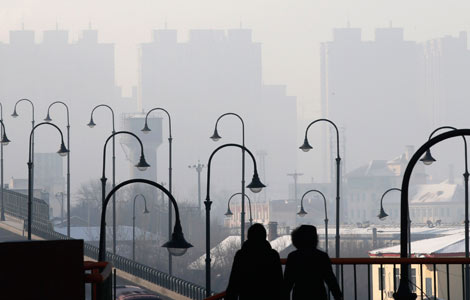
 Pollution's effect on health not clear yet, officials say
Pollution's effect on health not clear yet, officials say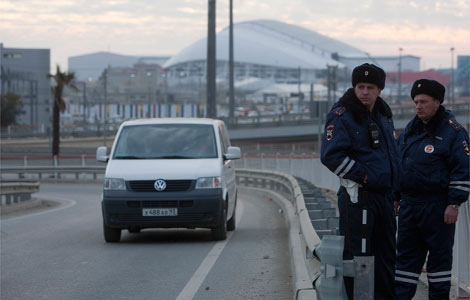
 Russia imposes security clampdown in Sochi before Olympics
Russia imposes security clampdown in Sochi before Olympics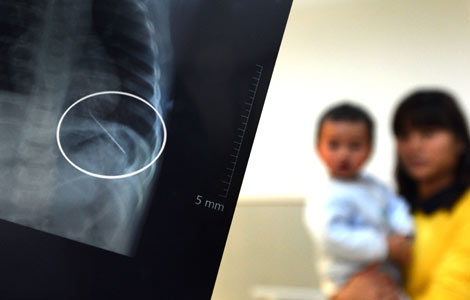
 X-ray reveals crying toddler had 5-cm needle inserted in his lung
X-ray reveals crying toddler had 5-cm needle inserted in his lung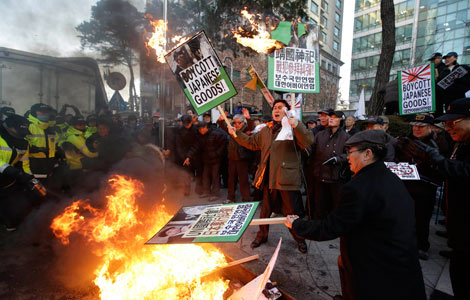
 Tokyo urged to end militarism
Tokyo urged to end militarism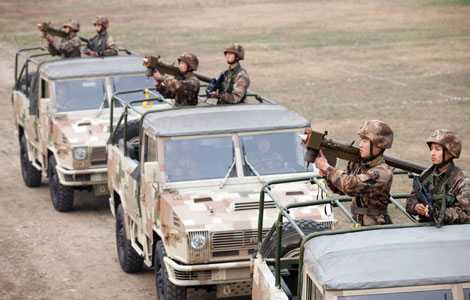
 Military drill in SW China
Military drill in SW China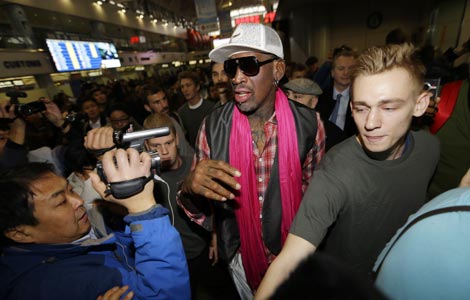
 Rodman in DPRK with ex-NBA team
Rodman in DPRK with ex-NBA team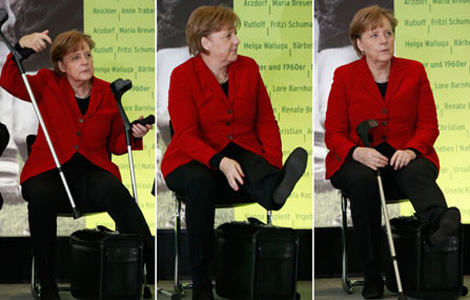
 Merkel breaks pelvis
Merkel breaks pelvis
 Trick photography
Trick photography
Most Viewed
Editor's Picks

|

|

|

|

|

|
Today's Top News
US-China trade deficit narrows, again
Staying ahead of the game
Odierno: US, China to work on issues
China is importing more US-built cars
Reform plan faces `challenges’: Professor
US jobless bill clears Senate hurdle
Solar firms face 'total eclipse' in US
Hong Kong Media mogul Shaw dies
US Weekly

|

|


